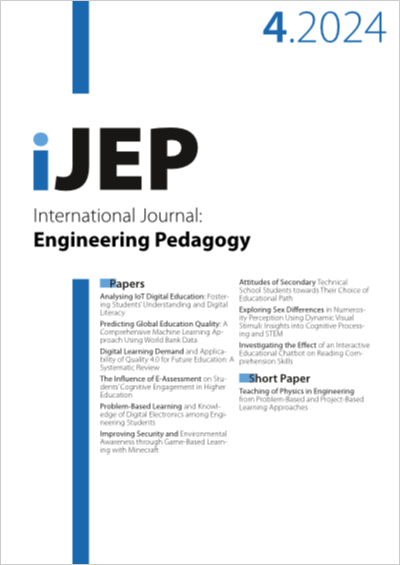Problem-Based Learning and Knowledge of Digital Electronics among Engineering Students
DOI:
https://doi.org/10.3991/ijep.v14i4.45075Keywords:
Digital electronics subject, learning, problems, knowledgeAbstract
This paper aims to explore the relationship between problem-based learning (PBL) and the digital electronics course for engineering students at a private university with a population of 97 students. The study utilized a deductive and correlational hypothetical method with a non-experimental and quantitative design. As a result, the statistically significant relationship between PBL and the digital electronics course is verified. A relationship coefficient equal to Rho = 0.780 and p < 0.01, confirms the proposed alternative hypothesis. This result provides a robust quantitative perspective on how the integration of PBL positively influences engineering students’ acquisition of digital electronics knowledge. The contribution lies in empirical support for the effectiveness of the PBL approach, providing educators and engineering professionals with a solid foundation for enhancing pedagogical strategies and fostering more effective and practical learning in the discipline.
Downloads
Published
How to Cite
Issue
Section
License
Copyright (c) 2024 Cristian Castro-Vargas, Maritza Cabana-Cáceres

This work is licensed under a Creative Commons Attribution 4.0 International License.


